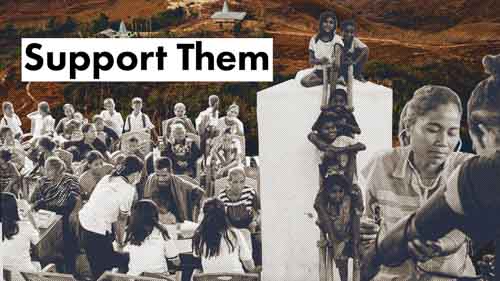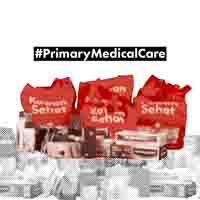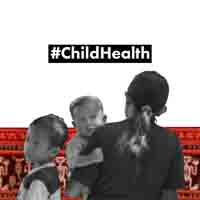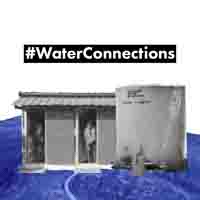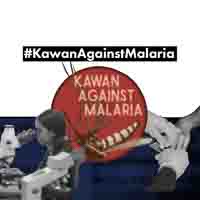Health, Wealth, and the Foundations of Inequality: The Daily Challenges in Ultra-Rural Areas
In rural communities, poor health is both a cause and a consequence of poverty. By acting to break this cycle, we save lives and empower futures.
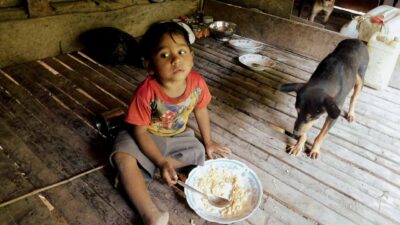
Breaking the Cycle of Inequality: How Health, Wealth, and Access to Resources Impact Lives in Ultra-Rural Communities.
The interaction between health, wealth, and inequality influences societal development and often dictates the quality of life for individuals, especially in the world’s most disadvantaged areas. For organizations such as the Fair Future Foundation, these issues are tangible challenges that they face daily rather than abstract ideas.
Economic disparities consistently lead to unequal (or lack) access to healthcare, education, and essential resources like clean water. Consequently, poor health restricts economic opportunities, entrenching a cycle of injustice and poverty. To design sustainable solutions effectively, it is crucial to understand the roots and mechanisms of these inequalities.
The Influence of Disparities in Numbers
According to WHO and UNICEF (2023), 26% of the world’s population, equating to 2 billion individuals, do not have safe and clean water. This situation is even more dire in the ultra-rural regions where Fair Future works, with some isolated communities experiencing rates as high as 70%.https://data.unicef.org/resources/jmp-report-2023/
According to the WHO 2023 report, half of the population in the least developed countries lacks access to fundamental healthcare services. Consequently, millions are compelled to travel long distances on foot to reach a doctor, and even then, they often arrive at inadequately equipped health facilities. This is basically why we created the Primary Medical Care Program in 2022.
According to the WHO in 2023, around 3.6 billion people, nearly half of the world’s population, do not have safe sanitation facilities like toilets or showers. This infrastructural deficiency significantly contributes to the spread of waterborne diseases.
Around 30% of the world’s population does not have access to a nutritious and varied diet, resulting in high malnutrition rates, especially among children. In areas where Fair Future operates (Nusa Tenggara Timur), like Indonesia, food shortages are commonly experienced.
The Historical Persistence of Inequalities
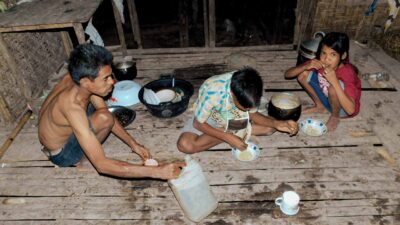
Addressing the growing challenge of tuberculosis in ultra-rural communities with prevention and care.
Throughout history, wealth has consistently determined access to essential resources. In areas where we operate, like Sumba in Indonesia, this manifests as inadequate infrastructure, limited medical care availability, restricted education opportunities, and a scarcity of clean water. Rural communities are frequently marginalized from national economies and consequently face preventable diseases such as malaria, dengue fever or infections stemming from contaminated water sources.
Technological advancements and globalization have exacerbated these disparities. While certain areas enjoy healthcare innovations and digital connectivity, others, such as isolated Indonesian villages, still lack basic amenities like electricity, running water, or sufficient transportation infrastructure. These structural inequalities significantly impact human lives: life expectancy declines, child mortality rates remain elevated, and preventable diseases continue to be prevalent. Read a bit more here: “Global Inequalities in Technology Access”.
Taking Action to End the Cycle of Inequalities
Fair Future tackles the social determinants of health by integrating clean water access, health education, and healthcare infrastructure. Programs like Water Connections and Primary Medical Care demonstrate how straightforward measures—such as installing water tanks or training local healthcare workers—can disrupt this challenging cycle. These efforts diminish health risks and enhance economic prospects and educational opportunities, ultimately building collective resilience.
For instance, our SolarBuddy program enables children without electricity to study at night and assists their families in safely navigating dark environments. In a similar vein, by setting up clean water points in remote villages, we help diminish the prevalence of waterborne diseases while allowing more time for education and economic pursuits.
An Urgent Appeal
To address inequality fundamentally, we require not just inclusive public policies but also the active participation of field organizations. Efforts such as those by Fair Future must be bolstered by worldwide acknowledgement of the needs faced by ultra-rural communities, where social justice and health are still considered luxuries for many.
By tackling economic disparities, health inequalities, and education at the same time, we can create a more equitable world. Let’s act together not tomorrow but today.
Some Documentation
- WHO and UNICEF Joint Monitoring Program (JMP) – Drinking Water – Read the report here.
- UNICEF Data on Drinking Water and Sanitation: Explore the data here.
- WHO – Universal Health Coverage Statistics: Check the statistics here.
- UNICEF Report on Global Sanitation: Read more here.
- UN Report on Global Food Security: View the report here.
Today, January the 8th, 2024 – Alex Wettstein



